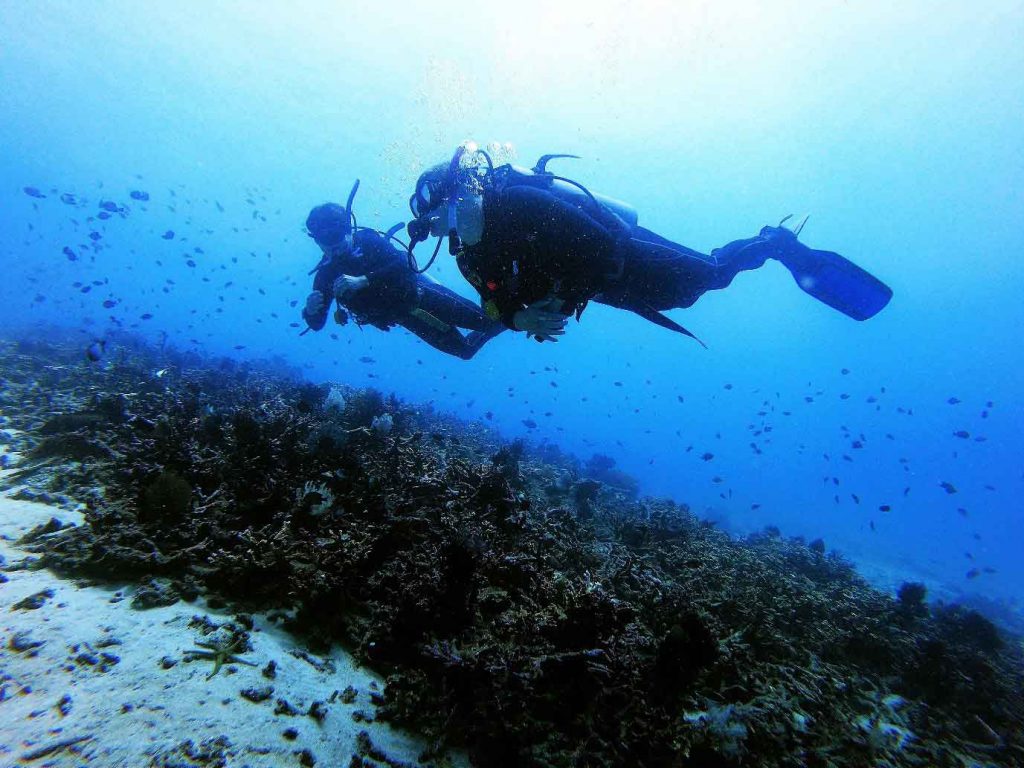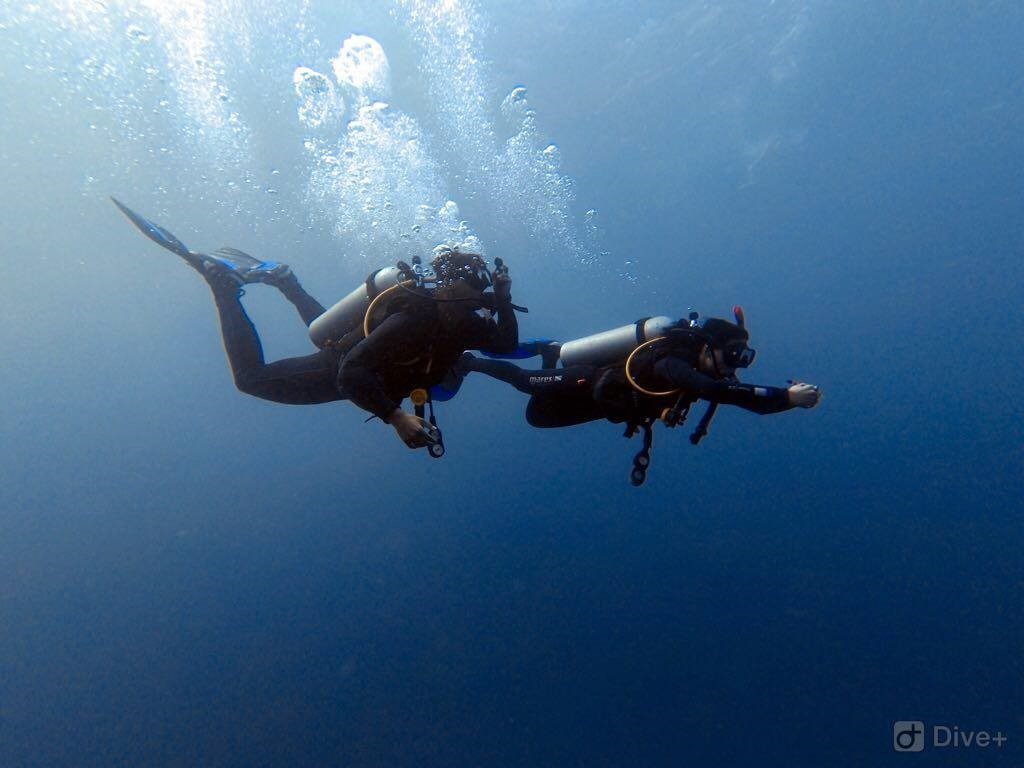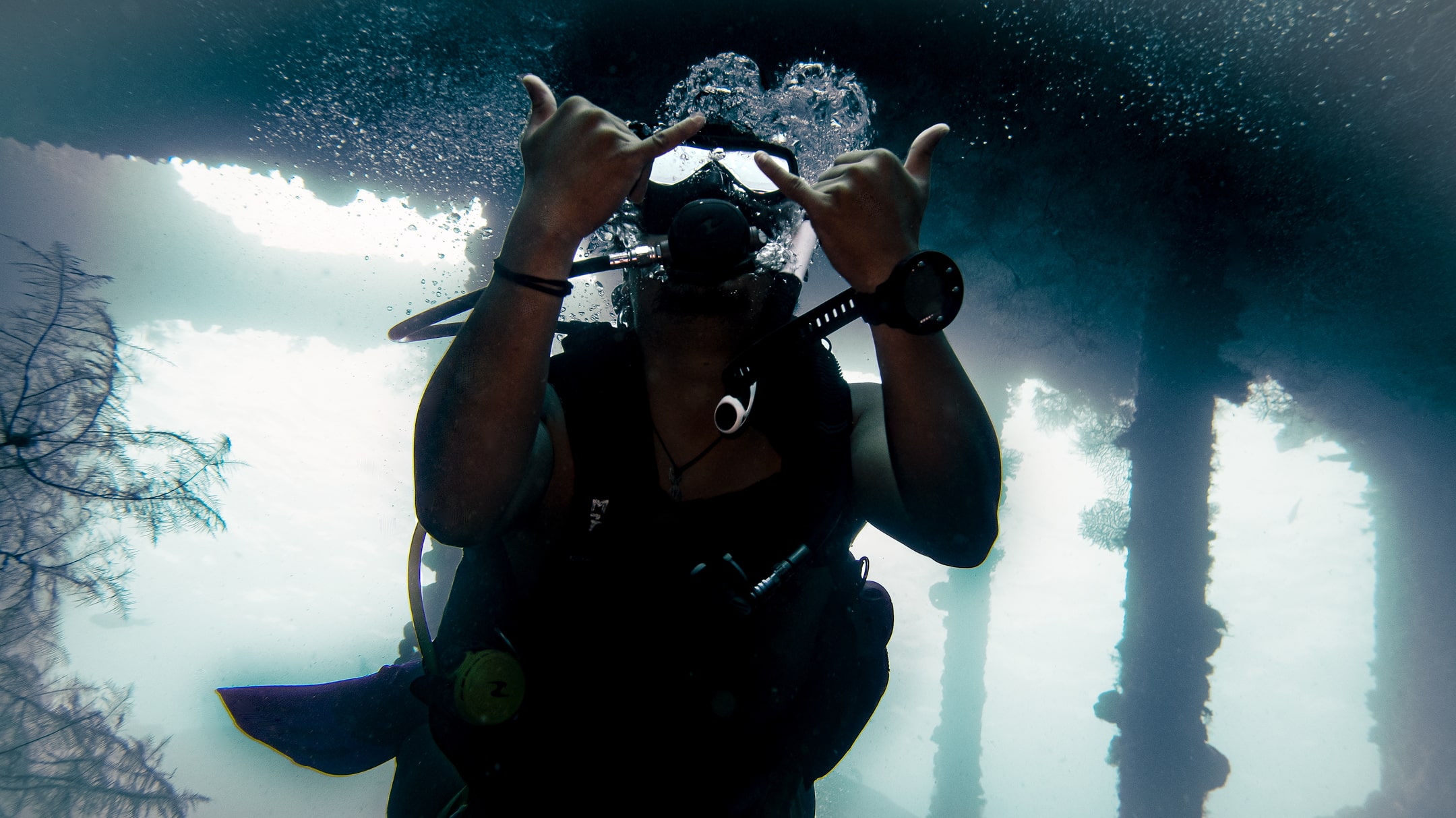When Scuba diving, we want to become neutrally buoyant. This means that we can use the laws of physics to temporarily achieve the feeling of weightlessness by using air to compensate for the gravitational pull.
To be able to glide effortlessly through the ocean and being able to spot even the tiniest of creatures, we need to fine tune and work on our buoyancy as much as we can. Also, it helps us to prevent any damage to the marine environment.
It is very rewarding to become a master of neutral buoyancy when diving here in Bali, so you can spot the various macro-critters that Bali has to offer such as Seahorses, Cleaner Shrimp and Nudibranches.

Let’s dive in the most important things:
Weighting
Finding and carrying the correct amount of weight is the most crucial and often ignored step towards good buoyancy control. People tend to start with way too many weights because they naturally are a bit excited to get in the water in the beginning. Still, it is crucial to learn to dive without massive amounts of weights.
Why, you ask?
Because any excess weight needs to be compensated by adding more air to our Buoyancy Control Device (BCD). Unnecessary air which will at changing pressure either compress or expand and in turn actually make it harder to stay in the sweet spot.
To find the necessary weight, make sure you ask your instructor or guide to help you do a weight check and try to experiment with the number of weights you bring. Also, consider that you will need more weight in fresh water as you would in salt water and it also depends on what kind of exposure protection you are wearing.
The weight check is also a skill you will learn and master during your Open Water Dive Course.
Breath Control
All experienced divers have this in common. Knowingly or not they are able to control their buoyancy by breathing. Breathing more deeply will lead to a temporarily increased buoyancy (going up or down) while breathing shallower will lead to a decreased buoyancy effect.
This is again why people tend to carry too much weight in the beginning since getting excited usually leads to deeper faster breathing which will prevent us from descending.
In your Open Water Course, you will learn with various skills how the breathing will affect your buoyancy – don’t be too hard on yourself at first. This usually takes some time to master.

The Buoyancy Control Device (BCD)
The BCD or jacket that scuba divers wear is an important tool to control the buoyancy. Many new divers mistakenly come to the conclusion that this is the most important, if not the only tool for good buoyancy. As we learned before this is not exactly true. Since weighting and breath control are just as important, if not more.
The main purpose of the buoyancy control device is actually to compensate for the wetsuit compression. As we descent and the pressure increase, the wetsuit will be compressed and subsequently losing its positively buoyant effect. In order to compensate this compression at depth we add small bursts of air to the BCD, to remain in a neutral state. This air also needs to be vented out in steps once we ascent and the air in the BCD and the wetsuit expand, to remain neutrally buoyant during the ascent. Your Open Water Instructor will show you during the PADI Open Water Course how to effectively inflate and deflate your BCD to remain neutral during the entire dive.
Personal Involvement
Unfortunately, your buoyancy is never going control itself. We as Scuba divers have to make a constant proactive effort to stay neutrally buoyant at all times. It’s important to anticipate and act before we start sinking or rising too much. In the beginning, this will need all your attention, but as you progress you will see that you will build the muscle memory and habits so it will feel very natural.
It will not come overnight and it’s a good reason to keep diving and also continue your diving education. Try the PADI Peak Performance Buoyancy Specialty Course to playfully develop a more refined buoyancy control while solving other tasks. Or do your Rescue Course, where you learn how to solve all sorts of Problems whilst remaining neutrally buoyant.
This is also the reason why we make all our IDC candidates and Divemaster Candidates here at Blue Season Bali present their skills neutrally buoyant – as we value the importance of neutral buoyancy as a habit rather than a skill.
Written by
Felix Schroers



